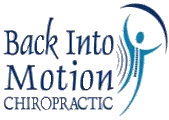Massage
Additional Massage Information:
Have you ever pressed on your lower back when it was sore? Squeezed a bicep after a good workout? Rubbed an upset stomach? Have you ever seen a dog lick a wound? Touch is instinctive. It is the way in which humans and animals connect with each other. Most people also realize it feels good, too. Massage, however, is much more than a back or foot rub that feels good.
So what is massage? Massage is therapeutic. Massage Therapy is a hands-on manipulation of the soft tissues of the body including muscles, connective tissue, tendons, ligaments and joints. It effects a change in the surrounding tissue and structures, enabling the body to relax and inducing a feeling of well being. Massage is also an alternative health option to help alleviate the soft tissue discomfort associated with everyday and occupational stresses, muscular overuse and many chronic pain syndromes. It can also greatly reduce the development of painful muscular patterning if employed early enough after accidents involving trauma and injury.
Generally speaking massage can:
| Strengthen the immune system | Promote relaxation |
| Help prevent injuries and loss of mobility | Calm the nerves |
| Relax taut & aching muscles | Reduce insomnia |
| Increase blood circulation and lymphatic flow | Assist in reducing stress |
| Maintain the body generally in better condition | Relieve headaches |
| Cure and restore mobility to injured muscle tissue |
Some physical effects of massage are:
Increased tissue permeability - Deep massage causes the pores in tissue membranes to open, enabling fluids and nutrients to pass through. Massage therapists work to improve the circulation of blood through the body and to speed the removal of metabolic waste products from muscles.
Stretching - Massage can stretch tissues that could not be stretched in the usual methods. Bundles of muscle fibers are stretched lengthwise as well as sideways. Massage can also stretch the sheath or fascia that surrounds the muscle, releasing any tension or pressure build up.
Break down scar tissue - Scar tissue is the result of previous injuries or trauma and can affect muscle, tendons, and ligaments. This can lead to inflexible tissues that are prone to injury and pain.
Some Physiological effects of massage are:
Pain reduction - Tension and waste products in muscles can often cause pain. Massage manually drains muscles of these wastes and facilitates the release of chemicals known as endorphins, the body's natural painkillers, bringing about a feeling of relaxation and well being. People taking medication for pain-relief often find that after using massage therapy for a time that they can lower their dosage. There are many documented cases of patients undergoing regular massage treatments being able to come off pain medication entirely.
Relaxation - Muscles relax through heat generated, circulation and stretching. When relaxation is induced, anxiety levels are reduced.
Different forms of massage affect your body differently, especially on a cellular level. Because there are so many styles of massage every therapist works in an individual way, and may subscribe to slightly different theories as to how their practice is carried out. Therefore, on your first visit, the patient will fill out a medical history form. In some cases, a doctor's note recommending massage is required.
Massage and chiropractic care work hand in hand together. In many cases, vertebral subluxation also has a muscular component to it. When muscles do not get the proper nerve information, they can spasm and pull the bones out of proper alignment. Therefore, massaging affected muscles will help relax them and assist with your adjustment.
Massage tip...DRINK WATER!!
The day after a deep massage you may be a little sore especially if you are not used to it. Drinking a lot of water will help minimize this potential after effect. Pay attention to how long the soreness lasts; it shouldn't be more than a day or two and once it's gone you should feel better than before the massage session. Soreness lasting more than two days means the massage was too deep for you and in your next session the pressure should be lessened.
Nausea, though uncommon, is also a possible side effect. Should you feel nauseous, drink more water! It's nothing to be worried about, it simply means too much of the waste products moved out of your muscles by the massage have collected in your bloodstream. The more water you drink the more quickly the wastes will move out of your system and the faster you will feel better.
